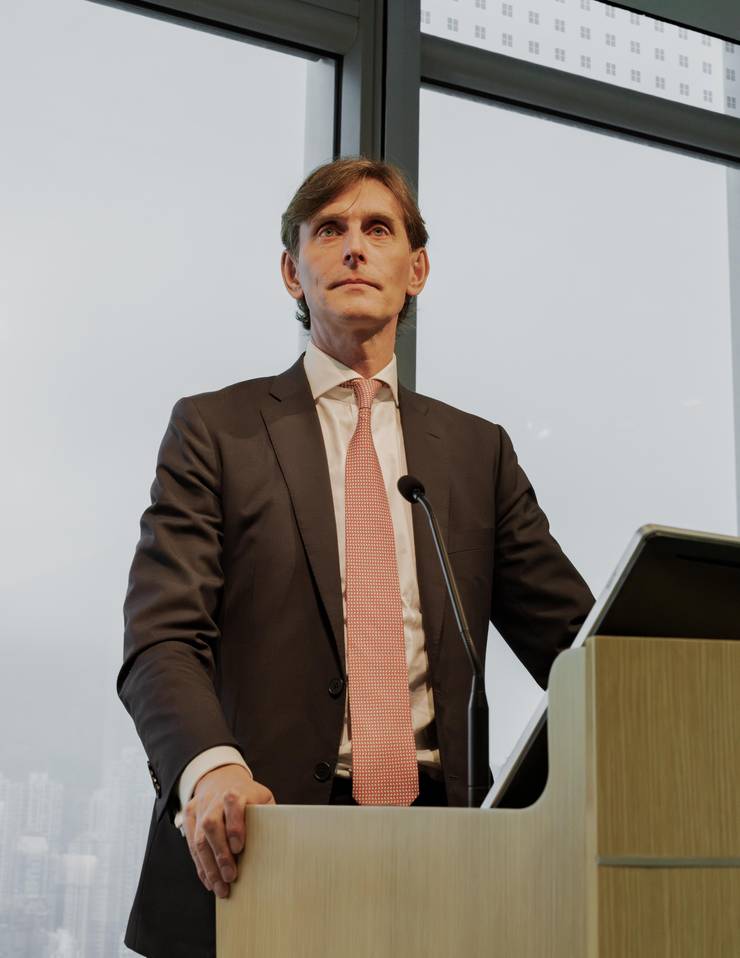The craft of making better decisions
Global financial markets never sleep so investing in them successfully requires an agile, proactive approach based on international research and insight. Niall MacLeod has been honing his craft in this respect for more than three decades.
Niall Macleod
Research leader
Global financial markets never sleep so investing in them successfully requires an agile, proactive approach based on international research and insight. Niall MacLeod has been honing his craft in this respect for more than three decades. Having joined UBS in 2008, he is currently APAC head of product management, UBS Research. “We’re trying to interpret what’s going on in the world in a way that helps our investing clients make better decisions,” he says.

When you talk about innovation in finance, how much of that involves predicting the future?
It’s a combination of things. Part of our work is trying to assess what is going to happen in the future. Part is about providing roadmaps, a thought process and a framework that helps our clients reach better investment decisions. We innovate a lot in techniques that will help us make better decisions and think about what our clients are going to need. UBS was very innovative about 10 years ago in creating UBS Evidence Lab, which collects all sorts of non-traditional information such as geospatial analysis, surveys or uses other novel techniques to help assess pivotal investment questions in a market or sector, for example: tearing down an electric vehicle, to better understand the supply chain and help identify who the winners might be from the rise in EV penetration.
How do you balance introducing innovations with maintaining a corporate framework?
We don’t want to be an organisation that doesn’t allow for challenge because if everyone just believes the same thing and turns out to be wrong, you’ve got a very serious problem on your hands. Challenge is critically important to the sustainability of a good financial services organisation.


How important is knowledge sharing?
One of the incredible strengths of UBS is the fact we have extraordinarily good communication and collaboration between people. It’s really part of the DNA of this organisation. Within research, we have 700 analysts, strategists and economists around the world with whom we have a very open dialogue. Trust is a critical part of communication. I don’t fear if a colleague in the US or Germany or India calls me out on a view, I don’t feel that it is a personal affront. I know it’s being done because we’re trying to reach a better decision.

What is the most underappreciated aspect of the craft of banking?
Financial services and banking in general involve risk and often high degrees of complexity. Managing that sustainably is all about having the right culture. What is underappreciated are the enormous lengths to which we go to ensure that we have the right culture; one that focuses on the long term, encourages collaboration and innovation, fosters challenge, and, most importantly, puts our clients at the heart of what we do.
Away from banking, where is the greatest potential for innovation?
AI has created enormous excitement. While there will be huge innovations in critical areas like the environment and tackling climate change, I’m particularly excited by what it could do for healthcare: more rapid drug discovery, enhancing our understanding of our physiology and exciting breakthroughs and insights into our own minds. And ultimately, people being able to live healthier, happier and longer.


